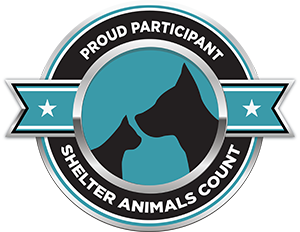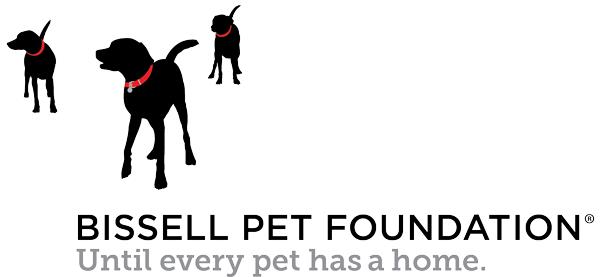About the German Shepherd Dog
Quick Links:
History of the German Shepherd Dog
Size of the German Shepherd Dog
Temperament of the German Shepherd Dog
Health of the GSD
Veterinary Care
Common Problems
Download a PDF version of About the German Shepherd Dog.
History of the German Shepherd Dog
The beginning of the GSD (German Shepherd Dog) dates back to 1899. The GSD was initially bred to be a herding dog for cattle, but as their strength and intelligence has come to light in more recent years, their ability to do almost any job has made them a very popular choice as K9 officers in police and military forces, service dogs, search and rescue dogs and more. As a rescue for GSD’s, we will meet dogs from every corner of life. Some come from abusive pasts, some from military work, and some from families who just couldn’t handle the dog. Our job as caretakers is to learn how to listen and respond to every dog we meet. This handbook is designed to help our fosters and adopters learn how to live successfully with one of the world’s smartest and most loyal dog breeds.
Size of the German Shepherd Dog
The GSD is designed to be a medium to large size dog, with males weighing in at 66-88 pounds and females at 49-71 pounds. Often, German Shepherd Dogs are being bred to achieve the largest size possible with no consideration for how it will affect their growth or the breed as a whole.
Because of this, we see many dogs with hip and/or elbow dysplasia, an unfortunate common abnormality in the hip and elbow joints. This genetic defect can cause lameness, excessive pain and often results in the need for surgery. If you suspect that your GSD has hip or elbow dysplasia, contact your vet to set up an X-ray, which can determine the severity of the dysplasia. In some cases, medications to ease pain are enough. In the worst cases, some dogs may need a single or double hip/elbow replacement, or may even need a wheelchair. The earlier you diagnose your dog, the easier it will be to avoid surgery.
Temperament of the German Shepherd Dog
There is a misnomer that the GSD is an aggressive breed. This comes from general misinformation and assumptions being made by the general public. German Shepherds are believed to be aggressive dogs because of their skill in police and military work, however it is quite the opposite.
German Shepherds are used in those fields because of their ability to listen to commands and stay loyal to their handler. German Shepherds are notoriously “velcro” dogs, meaning that they never leave their human’s side. They are the type of breed that almost always seeks human interaction above all else and, unless neglected or trained to be aggressive, will almost always welcome you with a nice wet kiss on the face.
German Shepherds can and will bond to their owners intensely, causing them to be protective and wary of strangers. Take the time to watch your dog’s reactions to other people and animals when you first take him or her home, and try to understand their body language and movements. It is important to understand the personality and behavior of any dog you have in your home to avoid injury to your dog or others.
German Shepherds are notably good with all ages of people, and all manner of animals, if raised to be that way. When in rescue, though, we take in dogs from all walks of life and so working with a rescue will always be riskier. Taking the time to understand your dog’s wants and needs will help in training them and in living with them. After all, you wouldn’t want a roommate you knew nothing about!
Health of the GSD
German Shepherd Dogs generally have a lifespan of between 9 and 13 years of age. There are things you can do to prolong their lives and keep them healthy. Here are a few:
Food
German Shepherd Dogs are notoriously allergic to even the most common things. Wheat is a very common allergy in the breed. For just a few dollars more, you can buy grain free food which will help you keep your dog from itching. Another thing a lot of pet owners don’t consider is the ingredient list on their dog’s bag of food. There are tons of fillers (no nutritional value) in cheap pet food brands. These fillers help to make your dog full, but do not provide the vitamins and protein your dog needs to be at his best. Things like “Meat by-products” are not ideal for a dog’s diet. Dog Food Advisor is a great website that helps owners to understand what is in their dog’s food and whether or not it should be there. You don’t have to spend big bucks to make sure your dog is getting the nutrition he needs to be strong, energetic, and have a long life.
Exercise
German Shepherd Dogs are a working breed. This means that they are not fans of sitting around the house all day. They want to have jobs and they want to exercise. There are tons of easy ways to keep your German Shepherd thin and fit no matter what your lifestyle is. F risbee, catch, running, swimming and many other activities can keep your dog stimulated both physically and mentally. Brain games are another great thing for dogs with the mental capacity that German Shepherds have. There are many tutorials online showing how to create fun brain games for dogs, and you can also purchase them on websites like Chewy.
Weight
We all know that porky dogs and cats are cute, but what we don’t think about is that being overweight can cause them all of the same issues it does a human. Obesity in pets is a very real concern, especially in a breed like the GSD where there already other health issues to consider. Hip dysplasia, which we talked about earlier, is severely worsened in overweight dogs because there is more pressure being put on their faulty joints. This is why we suggest that all dogs are kept to a very lean, manageable weight. Not only is it good for their joints, but it is also good for their cardiovascular health. If you are having trouble getting your dog to lose weight, see your veterinarian.
Veterinary Care
On top of keeping your dog routinely up to date on his shots, there are other things needed in order to keep your dog as healthy as possible. One such thing is ear cleaning. Ears can get incredibly dirty in a short period of time, leading to infection. Keep your dog’s ears clean by using an ear cleaning solution and some Q-tips at least every week.
Teeth are another very important aspect of a dog’s health. It is true that dogs have the ability to kill more bacteria with their saliva than people, but they still need dental care! Brush your dog’s teeth whenever you notice plaque forming, or if their breath starts to get worse than normal “dog breath.” If your dog won’t let you brush their teeth, try simply applying some doggy toothpaste to their gums. It activates with saliva and cleans their teeth without hassle. You can also see your vet to have a teeth cleaning done if you have an issue doing it yourself.
Common Problems
Unfortunately, “breed specific” health problems can arise due to poor breeding or just unfortunate circumstances. Here is a list of problems you may face while owning a German Shepherd Dog:
Hip Dysplasia
A common abnormality in the hip and elbow joints. This genetic defect can cause lameness, excessive pain, and often results in the need for surgery.
Bloat (Also known as GDV)
Because of the German Shepherd Dog’s deep chest, this breed is at high risk for bloat which is a deadly condition. Bloat occurs when the stomach or gastric regions of the dog are stretched and the stomach twists on itself, creating gasses that further expand in the stomach and cannot escape. Once a dog’s stomach has twisted there is a very high risk of death.
Knowing the signs of bloat, and how to prevent it is imperative and may one day save your dog’s life. Always be on the lookout for a distended (bloated) stomach, drooling, pacing, failure to vomit, panting and difficulty breathing. If your dog is displaying these signs it is imperative to get them to an emergency vet ASAP. Nothing can be done “at home” for bloat. In order to avoid bloat in your dog, do not let him exercise immediately before or after drinking excessively, eating a meal, and teach them to eat slowly. Once a dog has had bloat once it is almost guaranteed to happen again. Gastroplexy, or the stapling of the stomach to the abdominal wall, is a surgical way to prevent bloat in your dog and is often recommended at the time of spay/neuter.
Degenerative Myelopathy (DM)
Degenerative myelopathy is a progressive disease of the spinal cord in older dogs. The disease has an insidious onset typically between 8 and 14 years of age. It begins with a loss of coordination (ataxia) in the hind limbs. The affected dog will wobble when walking, knuckle over or drag the feet. This can first occur in one hind limb and then affect the others. As the disease progresses, the limbs become weak and the dog begins to buckle and has difficulty standing. The weakness gets progressively worse until the dog is unable to walk. The clinical course can range from 6 months to 1 year before dogs become paraplegic. If signs progress for a longer period of time, loss of urinary and fecal continence may occur and eventually weakness will develop in the front limbs. Another key feature of DM is that it is not a painful disease.
There are no treatments that have been clearly shown to stop or slow progression of DM. Although there are a number of approaches that have been tried or recommended on the internet, no scientific evidence exists that they work. The outlook for a dog with DM is still grave. The discovery of a gene that identifies dogs at risk for developing degenerative myelopathy could pave the way for therapeutic trials to prevent the disease from developing. Meanwhile, the quality of life of an affected dog can be improved by measures such as good nursing care, physical rehabilitation, pressure sore prevention, monitoring for urinary infections, and ways to increase mobility through use of harnesses and carts.
Flea Allergies
While most dogs have some sort of a reaction to fleas, German Shepherds tend to exhibit worse reactions than most. Fleas can result in hair loss, hot spots, and general discomfort for your dog. Keeping him on a flea preventative at all times will help to combat this issue, but if your dog does get fleas and has a bad reaction, address the issue immediately as fleas reproduce quickly and will spread to your other pets, your clothes, and furniture at a remarkable rate.
Environmental Allergies
Many German Shepherds are allergic to things as common and simple as grass. If you notice that your dog is scratching or licking constantly, take him to the vet to rule out causes like fleas or food allergies. There are several homeopathic remedies for itchy dogs, as well as allergy medications they can be put on to make them more comfortable.
Separation Anxiety
It may sound silly, but dogs can suffer from anxiety just like people. One side effect of being left alone for extended periods of time can be separation anxiety for your dog and it can cause destructive behavior. Crating your dog is a good way to combat this behavior when you are not home. Another way to keep your dog’s mind off of your absence is making sure they have things to do when they are alone, such as playing with chew toys, watching the television, or leaving brain games for them while you are gone.



